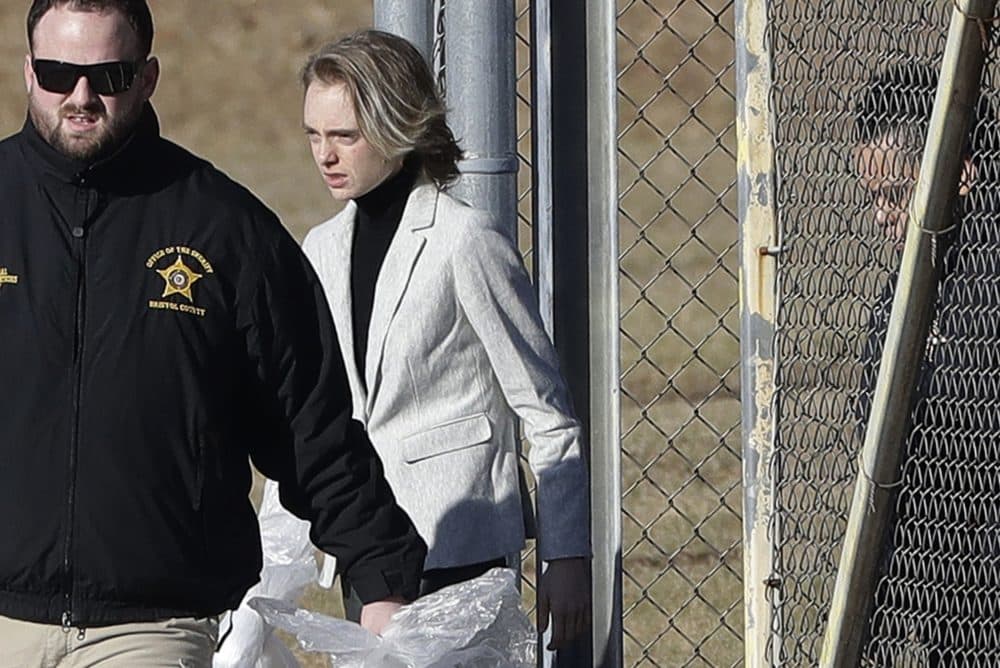Advertisement
Michelle Carter, Convicted In Texting Suicide Case, Is Released From Jail

A woman convicted of manslaughter for urging her suicidal boyfriend to kill himself in 2014 was released from jail Thursday morning.
Michelle Carter was released more than three months early from Bristol County Jail in Massachusetts, where she had been serving a 15-month sentence. The 23-year-old Plainville native accrued enough credits for good behavior and attending jail programs, according to officials. She now has to serve five years of probation.
Carter didn't speak as two jail staffers escorted her to an SUV where her lawyer and parents were waiting for her. She also declined to speak to reporters later Thursday as she reported to her probation officer.
State officials say Carter's probation ends Aug. 1, 2022. She also can't have any contact with her late boyfriend Conrad Roy III's family and can't profit from her story during that time.
Roy's mother, Lynn Roy, said Thursday she's looking forward to a "new chapter" in her life.
"It is now time to focus on the positives in my life," she said in a statement. "I will continue to honor my son every day, keeping his memory and spirit in my memory, and to find ways to help others who may be experiencing what I have experienced."
Bristol County Sheriff Thomas Hodgson, who oversees the jail where Carter served her sentence, said he understood how Carter's release could be painful for Roy's family and others. But he said Carter had been a "model inmate" who stayed out of trouble and participated in jail programs, which under state law allowed her to accrue time off her sentence.
Roy's aunt Becki Maki acknowledged the family is "disappointed" Carter wasn't required to serve her full sentence, but said that it still "doesn't change that Conrad is forever gone."
Her release comes after the U.S. Supreme Court declined last week to hear her lawyers' appeal of her involuntary manslaughter conviction in the 2014 death of her boyfriend, Conrad Roy III.
Carter's case garnered national attention, including an HBO special, as it raised thorny legal questions about free speech and provided a disturbing look at teenage relationships and depression. It also sparked legislative proposals in Massachusetts to criminalize suicide coercion.
A Massachusetts judge determined Carter, who was 17 at the time, caused the death of 18-year-old Conrad Roy III when she ordered him in a phone call to get back into his parked truck, which he had rigged to fill up with deadly carbon monoxide.
The phone call wasn't recorded, but the judge relied on a text Carter sent her friend in which she said she told Roy to get back in. In text messages sent in the days leading up to Roy's death, Carter also encouraged him to follow through with his suicide plan and chastised him when he didn't.
Carter's lawyers argued in their Supreme Court appeal that the conviction should be thrown out because it was an "unprecedented" violation of their client's First Amendment rights that suggested "words alone" are enough to hold someone responsible for another person's suicide.
They also argued there was simply not enough evidence to prove Carter urged Roy to get back in his truck to die, or that he would have lived if she had called for help or taken other actions to try and save him.
Resources: You can reach the National Suicide Prevention Lifeline at 1-800-273-TALK (8255) and the Samaritans Statewide Hotline at 1-877-870-HOPE (4673).
This article was originally published on January 23, 2020.